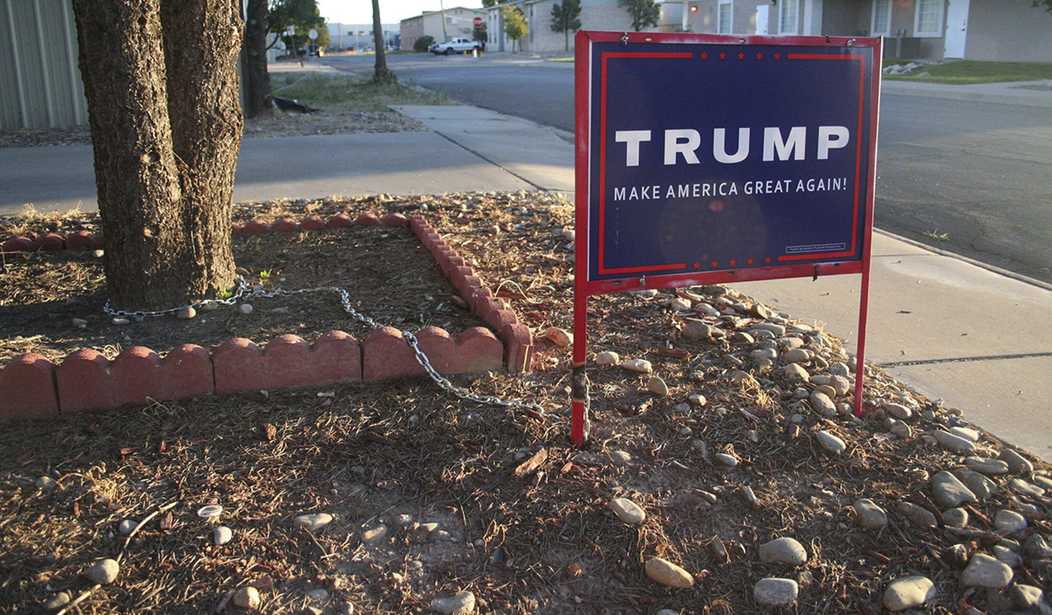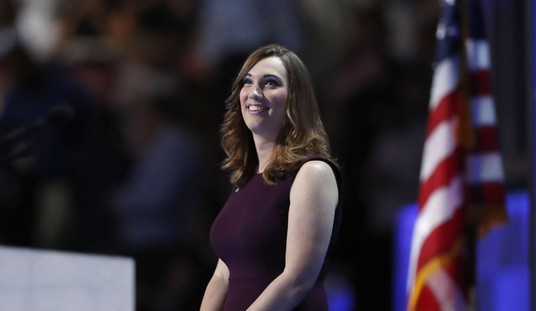Last week, a federal court ordered an Ohio town to stop implementing a law against free speech that prohibited residents from posting yard signs on private property. The town had threatened to impose a fine of $100 per day on anyone posting political yard signs more than 60 days before an election. A local constitutional law center sued the town, convincing the court to stop the law.
“When Ohio cities attempt to regulate signs on private property, they both abridge our free speech and violate our property rights at the same time,” said Maurice Thompson, executive director of the 1851 Center for Constitutional Law, which is representing a lawsuit against the town.
The 1851 Center filed the lawsuit against Perrysburg, Ohio and its Administrator Broden Walters on August 15. The outfit is representing independent Perrysburg City Council candidate Charles “Chip” Pfleghaar and one of his supporters, Katina Holland.
The lawsuit alleged that Walters reached out to Pfleghaar in mid-July, after the city council candidate had placed some yard signs supporting his own candidacy in his own yard. According to the city’s law, political yard signs are only permitted 60 days prior to and 7 days after an election.
In an email early last month, Walters laid out the specific penalties for Pfleghaar’s free speech: “if you put them in the right-of-way they will be taken and disposed of (so the penalty is losing the sign),” and “if they are maintained on private property in violation of the size or time requirements there is the potential for a zoning fine of $100 per day per violation.”
In other words, Pfleghaar’s two yard signs supporting his own candidacy, set up on his own property, would cost him $200 per day in an attempt to silence his free speech.
In response, Judge Jeffrey Helmick issued an injunction, ordering the city of Perrysburg to stop enforcing any law prohibiting political signs on private property, to stop enforcing any law putting a time limit on such signs, and to stop “threatening fines or other penalties in response to citizens’ otherwise-compliant display of political signs on private property.”
Helmick also noted that the city would not contest the plaintiffs’ motion and instead will amend its ordinances on signs before September 26.
This injunction does not end the lawsuit. Pfleghaar and Holland also sued for damages. As the lawsuit stated, the plaintiffs sued “to secure preliminary and permanent injunctive relief and damages.” Helmick’s order gave them the preliminary injunction, and the city’s revised standards may give them permanent injunctive relief, but damages still have to be assessed.
As the lawsuit stated, “Threatened deprivation of constitutional rights that chills speech is a First Amendment harm.” Furthermore, “Restricting spontaneous political expression places a severe burden on political speech,” since elections happen at a specific time and place, and the earlier a message gets out the better.
“Defendants’ policy of characterizing election-related political signs as ‘temporary,’ so as to trigger strict durational limits on when political speech through yard signs may take place, violates the First Amendment on its face,” the lawsuit argued.
As Pfleghaar’s election will take place this coming November, “each day’s chilling of speech is magnified.”
In his statement, the 1851 Center’s executive director, Maurice Thompson, insisted that “Ohioans should remain free to use their private property however they would like, so long as they abstain from inflicting harm on others. This of course includes displaying yard signs criticizing incumbent politicians, advocating for lower taxes, or advertising a business.”
“Yard signs are an efficient way for a homeowner to criticize public officials and identify where he or she stands on an issue,” Thompson added. “These signs are particularly important to political outsiders with lower name identification and less-established donor and political networks.”
Indeed, Thompson even argued that the yard sign is “likely the ultimate example of outsider-driven grass-roots politics, as the average homeowner lacks access to media outlets or the capacity to make large donations to candidates or issues.”
This is a key point in defenses of free speech in politics. Political incumbents and powerful organizations already have the ability to get their message out. Independents, primary challengers, and others are often drowned out because they are not associated with a party, or because they lack the platform of elected office.
Such people need a way to voice their political concerns, and yard signs are a key way to address that struggle.
For its part, the city has argued that the ordinance banning political signs will “enhance the physical appearance of the City … create an appearance that is attractive [and] … improve traffic safety.”
Neither Thompson nor Pfleghaar nor Holland oppose the banning of yard signs in the middle of the road, but they argue that banning such signs on private property and then threatening a fine of $100 per day is a serious violation of free speech. This injunction is a powerful first step in addressing their concerns.









Join the conversation as a VIP Member